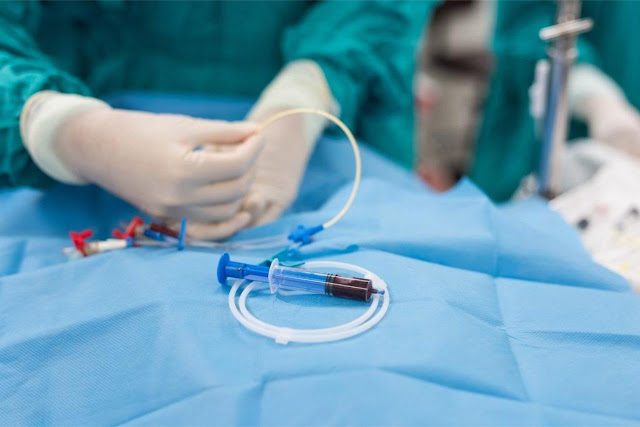A coronary heart disease (KHK) was found. The blood vessels that supply the heart are narrowed. Now it's about planning the treatment. A cardiac catheter examination is sometimes important. Often, however, it is not necessary at first.
Recommendation
Check with your doctor whether an immediate intervention can bring advantages for you. If this is not the case, you do not currently need a cardiac catheter examination.
What are the treatment options?
The treatment of a CHP pursues two goals: relieve complaints and prevent dangerous consequences, for example, death or heart attack. The most important thing is a healthy lifestyle: a lot of movement, eating balanced and if possible not (more) smoking. Medicines are recommended for all people with KHK. Stents or a bypass operation can help if the symptoms stop.
Under certain conditions, surgery can extend life. Then it can come into question earlier.
Medication
For all people with KHK, experts recommend coagulation inhibitors and blood fatty stabs (statins). Sometimes other active ingredients are added. In addition, there are funds that quickly relieve sudden symptoms. They only take them when symptoms occur.
Stent
Stents are wire grilles that keep narrowed areas open in the blood vessel. This is how you ensure better blood circulation. From the bar or the arm, the doctor pushes a thin probe over the bloodstream to the constriction. There is a balloon and stent at the top. The narrow point is widened and the stent grille keeps the blood vessel open.
bypass
Constricted blood vessels are bridged during open heart surgery. "Bypass" is English and means: bypass. You take the body's own veins or arteries. To plan the operation, you need a cardiac catheter examination.
Related: Symptoms of Heart Diseases - Important Heart Diseases at a Glance
When does a cardiac catheter examination make sense?
The cardiac catheter examination serves to plan a bypass operation or use stents. Anyone who decides to only take medication does not need a cardiac catheter.
When does a bypass operation help? When do stents help?
A large study provides indications that many people with a KHK have no survival advantage of immediate intervention. It is often sufficient to wait and see whether the symptoms with medication improve sufficiently. If you take all medication as prescribed and the symptoms remain stressful, experts recommend an intervention.
In certain situations, some people live longer thanks to a bypass surgery:
- In addition to the KHK, you have heart failure.
- You have diabetes (diabetes).
- You have a pronounced CHK or several vessels are affected.
- The main stem of the left coronary artery is affected (main stenosis).
If one of these points applies to you, surgery may have advantages for you, even if you have no strong symptoms. For some people, however, the operation is not recommended because their physical condition speaks against it. Stents can be considered in this situation. You don't know whether stents can also have a life extension.


Post a Comment